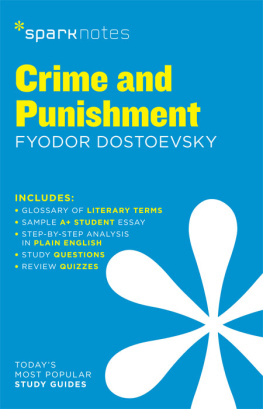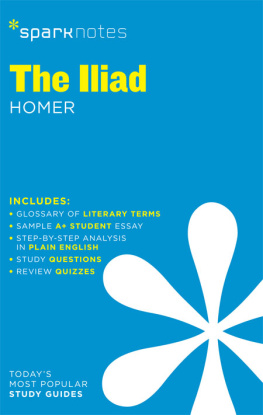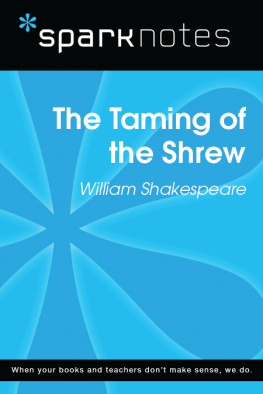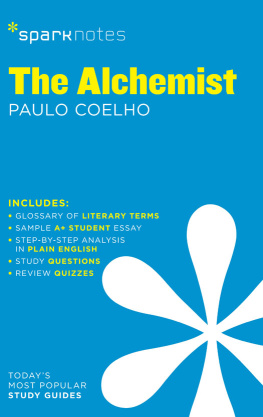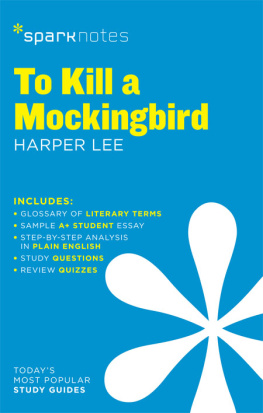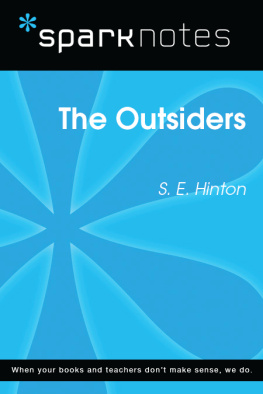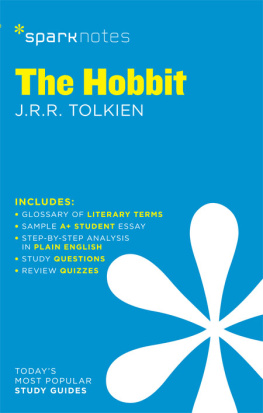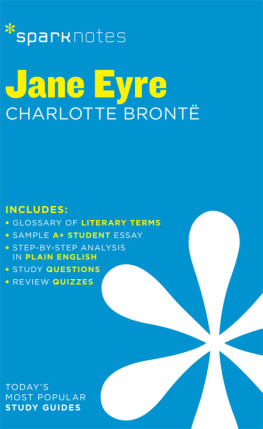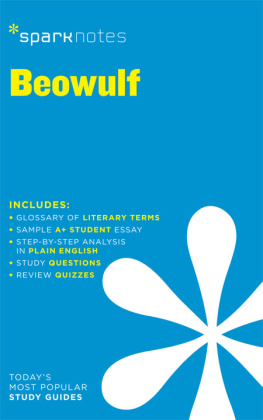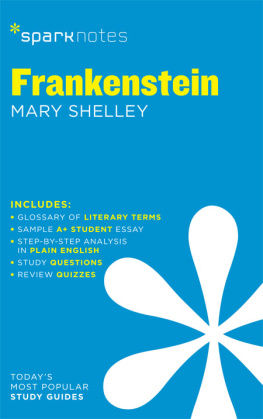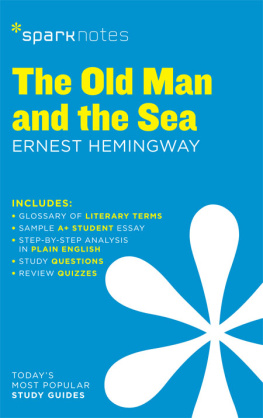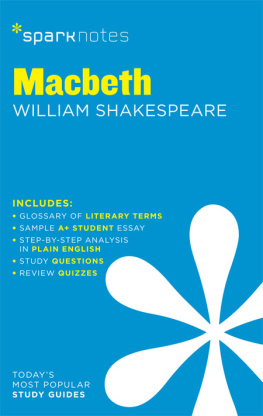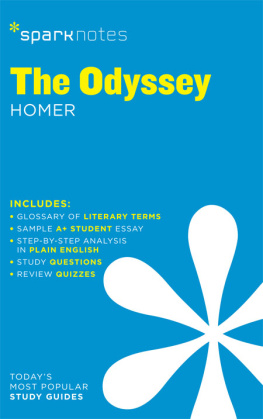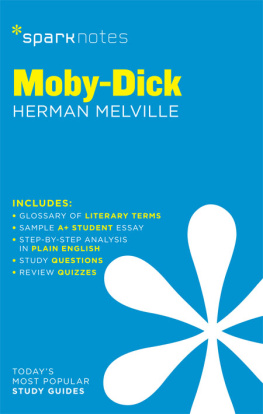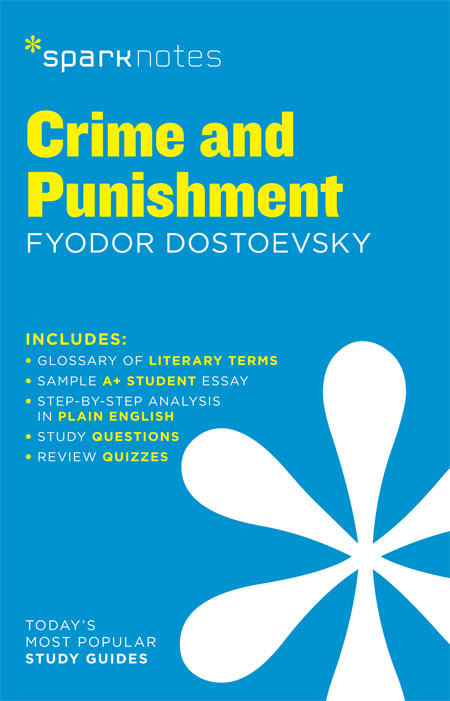Crime and Punishment
Fyodor Dostoevsky
2003, 2007 by Spark Publishing
This Spark Publishing edition 2014 by SparkNotes LLC, an Affiliate of Barnes & Noble
All rights reserved. No part of this publication may be reproduced, stored in a retrieval system, or transmitted in any form or by any means (including electronic, mechanical, photocopying, recording, or otherwise) without prior written permission from the publisher.
Sparknotes is a registered trademark of SparkNotes LLC
Spark Publishing
A Division of Barnes & Noble
120 Fifth Avenue
New York, NY 10011
www.sparknotes.com /
ISBN-13: 978-1-4114-7156-6
Please submit changes or report errors to www.sparknotes.com/errors.
10 9 8 7 6 5 4 3 2 1
Context
F yodor Dostoevsky (also spelled Dostoyevsky) is renowned as one of the worlds greatest novelists and literary psychologists. His works grapple with deep political, social, and religious issues while delving into the often tortured psychology of characters whose lives are shaped by these issues. Born in Moscow in 1821 , the son of a doctor, he was educated first at home and then at a boarding school. His father sent him to the St. Petersburg Academy of Military Engineering, from which he graduated in 1843 . But, as he had long set his sights on literature, Dostoevsky immediately resigned his position as a sublieutenant in exchange for the much less stable life of a fiction writer. His first book, Poor Folk, was published to critical acclaim in 1846 .
In 1847 , Dostoevsky became active in socialist circles, largely because of his opposition to the institution of serfdom. On April 23, 1849 , he was arrested for his participation in a group that illegally printed and distributed socialist propaganda. After spending eight months in prison, he was sentenced to death for membership in the group and led, with other members of the group, to be shot. But the execution turned out to be a mere show, meant to punish the prisoners psychologically. Dostoevsky then spent four years at a labor camp in Siberia, followed by four years of military service. Raskolnikovs time in a Siberian prison, described in the Epilogue of Crime and Punishment, is based on Dostoevskys own experiences at a similar prison.
During his time in prison, Dostoevsky suffered the first of many epileptic seizures. He also underwent something of a political conversion, rejecting the radical socialist positions that had led to his arrest in favor of a conservative concern for traditional values. His dismissal of leftist political thought is evident in Crime and Punishment. For instance, Raskolnikovs crime is motivated, in part, by his theories about society. Lebezyatnikov, whose name is derived from the Russian word for fawning, is obsessed with the so-called new philosophies that raged through St. Petersburg during the time that Dostoevsky was writing the novel. Luzhin, a mid-level government official, is continually afraid of being exposed by nihilists.
In 1857 , Dostoevsky married Mariya Dmitriyevna Isayeva, who died of consumption seven years later. He spent much of the 1860 s in Western Europe experiencing the culture that was slowly invading Russia and struggled with poverty, epilepsy, and an addiction to gambling. But with the 1866 publication of Crime and Punishment, a long, delirious trip through the psyche of a tormented murderer, his fortunes improved. The novels popular and critical success allowed him to keep ahead, just barely, of daunting debts and the burden of supporting a number of children left in his care after the deaths of his brother and sister. In 1867 , he was married a second time, to Anna Grigoryevna Snitkina, who helped him cope with his epilepsy, depression, and gambling problems, and who had served as his stenographer for his novel The Gambler. After Crime and Punishment, Dostoevsky went on to write a number of other classics of world literature. These include The Idiot, published in 1868 , and another masterwork, The Brothers Karamazov, published in 1880 . He died in 1881 .
Dostoevskys novels and other writings were major influences on twentieth-century literature and philosophy. Some people saw the political themes of his novels as prescient depictions of life under the Soviet regime. The existentialist movement that took shape in the middle of the twentieth century looked to him for his descriptions of human beings confronting mortality, despair, and the anxiety of choice. Writers such as Albert Camus and Jean-Paul Sartre valued Dostoevskys writing for his profound insights into human dilemmas, which, along with his style, themes, and unforgettable characters, continue to influence writers more than a century after his death.
Plot Overview
R odion Romanovich Raskolnikov, a former student, lives in a tiny garret on the top floor of a run-down apartment building in St. Petersburg. He is sickly, dressed in rags, short on money, and talks to himself, but he is also handsome, proud, and intelligent. He is contemplating committing an awful crime, but the nature of the crime is not yet clear. He goes to the apartment of an old pawnbroker, Alyona Ivanovna, to get money for a watch and to plan the crime. Afterward, he stops for a drink at a tavern, where he meets a man named Marmeladov, who, in a fit of drunkenness, has abandoned his job and proceeded on a five-day drinking binge, afraid to return home to his family. Marmeladov tells Raskolnikov about his sickly wife, Katerina Ivanovna, and his daughter, Sonya, who has been forced into prostitution to support the family. Raskolnikov walks with Marmeladov to Marmeladovs apartment, where he meets Katerina and sees firsthand the squalid conditions in which they live.
The next day, Raskolnikov receives a letter from his mother, Pulcheria Alexandrovna, informing him that his sister, Dunya, is engaged to be married to a government official named Luzhin and that they are all moving to St. Petersburg. He goes to another tavern, where he overhears a student talking about how society would be better off if the old pawnbroker Alyona Ivanovna were dead. Later, in the streets, Raskolnikov hears that the pawnbroker will be alone in her apartment the next evening. He sleeps fitfully and wakes up the next day, finds an ax, and fashions a fake item to pawn to distract the pawnbroker. That night, he goes to her apartment and kills her. While he is rummaging through her bedroom, looking for money, her sister, Lizaveta, walks in, and Raskolnikov kills her as well. He barely escapes from the apartment without being seen, then returns to his apartment and collapses on the sofa.
Waking up the next day, Raskolnikov frantically searches his clothing for traces of blood. He receives a summons from the police, but it seems to be unrelated to the murders. At the police station, he learns that his landlady is trying to collect money that he owes her. During a conversation about the murders, Raskolnikov faints, and the police begin to suspect him. Raskolnikov returns to his room, collects the goods that he stole from the pawnbroker, and buries them under a rock in an out-of-the-way courtyard. He visits his friend Razumikhin and refuses his offer of work. Returning to his apartment, Raskolnikov falls into a fitful, nightmare-ridden sleep. After four days of fever and delirium, he wakes up to find out that his housekeeper, Nastasya, and Razumikhin have been taking care of him. He learns that Zossimov, a doctor, and Zamyotov, a young police detective, have also been visiting him. They have all noticed that Raskolnikov becomes extremely uncomfortable whenever the murders of the pawnbroker and her sister are mentioned. Luzhin, Dunyas fianc, also makes a visit. After a confrontation with Luzhin, Raskolnikov goes to a caf, where he almost confesses to Zamyotov that he is the murderer. Afterward, he impulsively goes to the apartment of the pawnbroker. On his way back home, he discovers that Marmeladov has been run over by a carriage. Raskolnikov helps to carry him back to his apartment, where Marmeladov dies. At the apartment, he meets Sonya and gives the family twenty rubles that he received from his mother. Returning with Razumikhin to his own apartment, Raskolnikov faints when he discovers that his sister and mother are there waiting for him.

